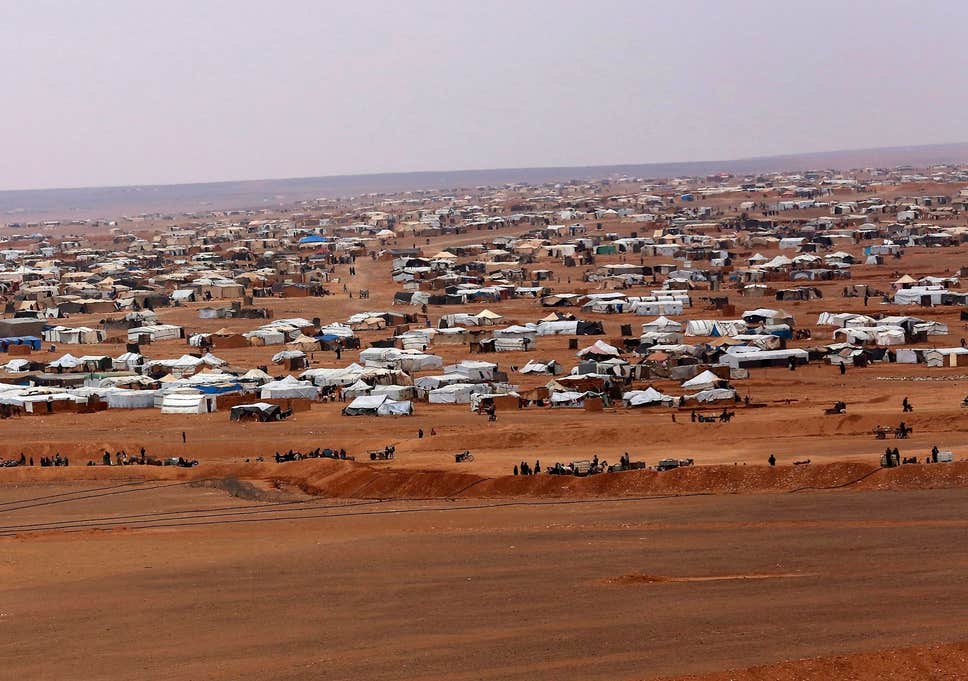
- ARAB NEWS
- 13 Jul 2025

While the attention of many has been correctly pointed to the regional reshuffle in the Middle East following the Trump administration’s greenlight to its NATO ally Turkey, this is much bigger than a Kremlin military win. As the US is largely exiting Syria and Iraq, the region will now most likely have a totally different configuration, with Moscow playing a major role. Two major US allies, Lebanon and Jordan, have been slowly moving into the Russian sphere, and that effort has accelerated due, in large part, to the abandonment of the region by the Trump administration.
When the US withdrew its skeleton staff of ground troops and, more importantly, its powerful air supremacy from northern Syria, Russia quickly filled the power vacuum it left behind. Along with Turkey, Iran and the Assad regime, the Arab “Mashreq” is slowly shifting alliances. Washington’s abrupt decision to withhold money earmarked for the Lebanese army will further support non-state players like Hezbollah and ultimately favor Russia’s new hegemony in the Middle East.
When the Trump White House placed an “indefinite implementation hold” on security assistance to Lebanon without even informing the Department of Defense or State Department, this provided a further opening to the Russians. The aid freeze, including $105 million to support the Lebanese army, will go a long way toward reducing the power of the Lebanese president and government and will undoubtedly strengthen Russia’s regional influence.
Disagreements over offshore gas rights are also playing into this battle for regional influence, with the Russian effort widely noticed on Mediterranean shores. In addition to France’s Total and ENI of Italy, the Russian Novatek is now drilling for oil in the Eastern Mediterranean. Israel, America’s only remaining major ally in the area, lays claim to the same waters with little success. When US Secretary of State Mike Pompeo visited Lebanon in March, he sided with Israel on gas rights and even called on the Lebanese to reconsider their drilling efforts. Both Hezbollah’s Hassan Nasrallah and Lebanese President Michel Aoun opposed the American request.
Bilateral trade between Lebanon and Russia today exceeds $500 million a year. The Lebanese are known to import $900 million worth of Russian oil and hydrocarbons and, unlike the Americans, the Russians never asked the president and the prime minister to limit the power or influence of Hezbollah.
While the US influence in Lebanon is slowly deteriorating, Washington has always counted on Jordan as a strong, stable and reliable ally. But even this partnership is being tested and Jordan’s moderate monarch is quietly seeking other regional partnerships for fear of America also abandoning him.
When President Donald Trump held a meeting with heads of state on the sidelines of the UN General Assembly in New York in September, it was held at exactly the same time as King Abdullah delivered his speech. The timing might be coincidental, but the fact remains that Trump has shunned King Abdullah during his last two visits to the US. Jordan and the Trump administration differ on the move of the US Embassy in Israel to Jerusalem and the importance of the two-state solution.
Russia has been quietly working with Jordan to remove it from the pro-US camp. Jordan and Russia have agreed that displaced Syrians holed up in the Rukban refugee camp near the Jordanian border should return to government-held territory.
Daoud Kuttab
Russia has been quietly working with Jordan to remove it from the pro-US camp. Jordan and Russia have agreed that displaced Syrians holed up in the Rukban refugee camp near the Jordanian border should return to government-held territory. The camp, which at one time hosted more than 41,000 Syrian refugees, now hosts just a couple of thousand. The Rukban camp lies inside the borders of the US military base at Al-Tanf and, as such, is seen by many as part of the American sphere of control. In November 2018, Jordan formally sided with Russia and the Syrian regime with regards to the fate of the camp and its residents. This stance was reiterated during the fifth session of the Russian-Arab Cooperation Forum in Moscow in April.
Tourism from Russia to Jordan has spiked, thanks in part to the Jordan Tourism Board subsidizing Russian tourists visiting the country to the tune of $60 each. Records show that tourist visits from Russia have been on the rise since 2017, with 70,627 visiting Jordan in 2017, compared to 49,384 in 2016. In 2018, about 1,000 Russian tourists arrived in Aqaba every week. Jordanian officials estimate that 12 percent of the country’s economy is dedicated to tourism.
But, while analysts have correctly zoomed in on the changes in the military and economic spheres, Moscow appears to have a much wider plan for the region. Take, for example, what it is doing in the media sphere. Not only is Sputnik, the Russian state-run media giant, producing satellite broadcasts in Arabic, its radio programs can now be heard on local radio thanks to partnership agreements with a local Lebanese radio station, which has a powerful reach throughout Lebanon, Syria and the north of Jordan. Further arrangements with Jordanian and Iraqi radio stations are in the pipeline as the Russian state works hard to cement its newfound military gains. For a fraction of what US broadcasting services are spending on Alhurra TV and Sawa Radio, the Russians are reaching their target audience with the help of local media.
The Trump administration’s withdrawal from northern Syria might have seemed small at the time, but the long-term effect of this move is a seismic shift that will greatly increase Russia’s influence on the entire Middle East region.